With a population of 1.4 billion, a surface area of over 30 million km2 and a land cover of 6% of the earth's surface, Africa is the region most vulnerable to climate change. Extreme weather phenomena are degrading the soil and accelerating the advance of the desert, with 319 million hectares threatened by desertification according to the United Nations Food and Agriculture Organisation (FAO). To curb the phenomenon, governments, businesses and civil society are setting up a range of reforestation projects. But does planting trees really help to combat global warming?
In Africa, soil degradation affects 74% of people living in poverty. As a result of climate change, 12 million hectares of land are lost every year to desertification – the equivalent of 23 hectares every minute. The Food and Agriculture Organization of the United Nations (FAO), which publishes these figures, adds that 319 million hectares of land are threatened by desertification on the continent. It should also be remembered that Africa is home to the largest hot desert in its northern part. The Sahara covers 8.5 million km2, or 30% of the continent’s total surface area.
Every means is therefore being deployed to counter the advance of desertification, and by extension to combat the effects of climate change. Reforestation is one of the most popular solutions. According to the experts, planting trees generally protects the soil and helps it retain water over the long term. It’s not just the soil that will benefit from the advantages of vegetation; livestock will also benefit from the grasses that result from this vegetation. More importantly, studies show that photosynthesis by tree leaves can store atmospheric CO2, helping to reduce greenhouse gases (GHGs) in the atmosphere.
Senegal plants 20 million trees in one year
To combat climate change and its various corollaries – deforestation, desertification and so on – African countries are implementing reforestation plans. Senegal is one of the best performers in this field. In September 2020, the West African country launched a new special reforestation operation that planted nearly 20 million trees across the country. The operation involved making baobab or cauliflower seedlings, which are more resistant to poor soils, available to rural populations free of charge. It was then up to the local people to look after them. This operation has helped to reduce the number of hectares of forest lost each year, from 80,000 to 40,000 hectares in less than ten years.
In Africa, the Great Green Wall (GGW) initiative is the centre of attention: launched in 2007 by the African Union (AU), the initial aim of the project was to plant millions of trees over a 15km-wide strip stretching from Senegal to Djibouti. But only 4% of the target set for 2030 has been achieved, i.e. 4 million hectares of developed land out of a total of 100 million hectares.
This delay is partly due to insecurity problems in many countries in the Sahel, the original project area. According to Elvis Paul Tangem, the GMV project coordinator for the AU, it is almost impossible to continue planting trees and restoring degraded land in Mali, Burkina Faso, Niger, Chad, Nigeria, Eritrea and northern Cameroon because of insecurity and the reallocation of funds to humanitarian aid. To overcome this obstacle, the AU decided in February 2023 to extend the Great Green Wall project to southern Africa.
Alongside the GGW, the African Forest Landscape Restoration (AFR100) initiative is another of Africa’s large-scale reforestation projects. Launched in 2015 by a number of African countries, AFR100 is a pan-African, nationally-led effort that aims to restore 100 million hectares (or 1 million km2) of deforested and degraded landscapes by 2030. To date, the initiative has been joined by 34 countries, which have pledged to make 130 million hectares of land available for restoration by 2030. These countries include Togo, Ghana and Zimbabwe.
Reforestation, one decarbonisation solution among others
The use of reforestation as a solution to climate change is not exclusive to Africa. It is also fashionable in the rest of the world.
A number of multinationals are using them to offset their carbon footprint. But in recent years, studies have shown that planting trees is far from being the solution to global warming.
In one of his publications on the subject, French scientific journalist Clément Fournier notes that today, human activities emit around 55 billion tonnes of CO2 per year, while the capacity of plant life to absorb this CO2 is only around a dozen billion tonnes per year. This means that humans are emitting 40 to 45 billion tonnes of CO2 too much. To achieve carbon neutrality, we would need to plant 1,500 billion trees. In terms of surface area, this would be more or less equivalent to planting one billion hectares of forest, an area the size of the United States of America or China.
However, this level of reforestation is not feasible. A significant proportion of the Earth’s surface is made up of ecosystems where trees grow little or poorly. These include savannahs, tundras, fruticées, permanent grasslands, mountain areas, coastlines and desert zones. To these must be added areas devoted to human activities such as agriculture, infrastructure and housing.
Taking these parameters into account should not, however, lead us to believe that reforestation initiatives will remain futile in the face of the climate crisis. Planting trees is just one of many solutions, including energy efficiency, the transition to renewable energies, and the decarbonisation of industry and transport through the use of green electricity and biofuels. It is within this synergy of solutions that reforestation can make an effective contribution to mitigating global warming.
Boris Ngounou

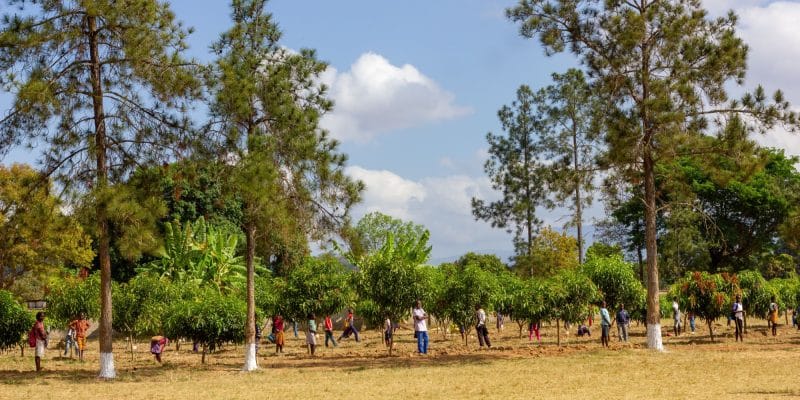
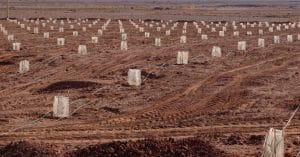
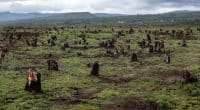
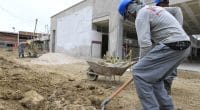
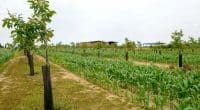



You must be logged in to post a comment.